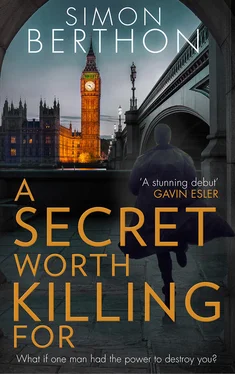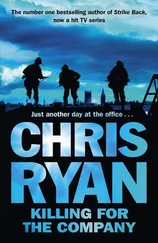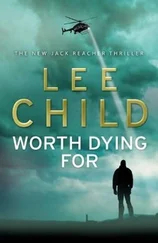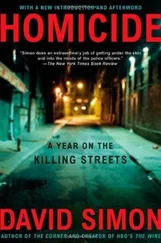Joseph’s mother answers. ‘Maire, you’re looking in late.’
‘Sorry, Mrs Kennedy.’
‘It’s OK, love, come in.’
‘I was just looking for Joseph.’
‘Haven’t seen him today, love. You know how it is with him. Always in and out.’
‘OK, Mrs Kennedy, never mind. Thanks anyway. I’d better be away.’
The next day is worse. Silence. Alone. She’s been hung out to dry. She tells herself again that this is what it must be like. Despite the falseness she feels ever surer of, she craves to see Joseph. Perhaps he really does have an explanation and it can still be all right between them. She listens out for Martin’s footsteps and one of his cheery entrances into the house. It doesn’t matter what’s said, she simply needs someone who knows to talk to.
At lunchtime, the noose tightens. ‘The victim was Inspector Peter Halliburton, who was on secondment to local police from London’s Metropolitan Police Special Branch. Mr Halliburton, aged thirty-six, was married and had two children of six and eight. There has still been no claim of responsibility for his killing,’ announces the radio news.
She thinks of him lying on the bed, his zip undone, his penis bared, a young man, husband, father, in the dying moments of his short life. She tries to justify it. He shouldn’t have come with her. He betrayed his marriage and those children. He was a representative of the occupying forces. The words and excuses taste of sulphur.
Her one good fortune is that on Monday both her parents are out and she can stay in her room without need for explanations. In the late afternoon, shortly before her mother is due home, she goes out, propelled once again by some automatic, subconscious navigation in the direction of Joseph’s home. She steels herself to ring the bell. No answer. She knocks on the door. No answer. She backs away to look up at the first floor. The curtains in Joseph’s room are drawn. Either he’s still away or deliberately avoiding her. The question jumps at her. Could they have arrested him? Are they holding him, forcing him to implicate her? Surely his mother would have known. Surely Joseph is too smart.
Early the next morning, 5.45, it happens. A violent beating on the front door, the sound of her father descending the stairs to answer it. She peeps behind a curtain of her bedroom window to see two armed police jeeps to the right and left and a police saloon, its roof light silently revolving. She hardly has time to take it in before two uniformed police enter her room with neither words nor knocking.
‘Get dressed,’ says one.
The second speaks more formally.
‘Maire McCartney?’
‘Yes.’ She tells herself to resist the tears.
‘I have a warrant to arrest you on a charge of conspiracy to murder Peter Halliburton on the night of Saturday the twenty-third of July. You have the right to stay silent. Anything you say can and will be used against you in a court of law . . .’
Even as she dresses herself, and they pull her hands in front of her to apply handcuffs, it’s as if it were happening to another person. It belongs to a parallel universe. The person she really is could never have degraded herself to this.
The walk down the stairs and out of the front door freezes her into self-loathing. Her mother and father watch, their eyes aflame with humiliation. She’s unable to speak, only to shake her head. Once inside the police car, she lacerates herself for being too weak to leave them words of hope.
They take her to Castlereagh, a journey that is a badge of honour for anger-fuelled young men, a spiral into blackness for her. How do they know it was she? They must have soon worked out that the victim had been lured. Were her shoes still in the room, showing that a woman took him there? Could Joseph and friends have been so careless? Did they suspect Joseph and make the connection to her? Perhaps they’re just operating on that hunch and have no hard evidence.
She slumps in a cell for hours, allowed only to brush her teeth and visit the toilet. She’s escorted to a bleak room where a woman in a white coat takes her fingerprints and a swab from her throat. She’s brought food but her sense of time begins to fade. All she knows is that, when she’s taken to an interview room, occasional shafts of light show that it is not yet night.
Two men in suits arrive, a recording machine is switched on. They introduce themselves but she doesn’t catch their names. Again, she feels distant and disconnected. Her real self is floating on the ceiling above, looking disdainfully at the grotesque spectacle beneath.
‘We know you were with him,’ they say.
‘I’ve nothing to say,’ she says. It’s all she says that evening, again and again. At least Joseph told her to do that if anything went wrong.
‘Your brother’s a Provo, your boyfriend’s a Provo. You were with him in that bedroom. You leave, a few minutes later he’s shot dead by a gang of your friends. You’re going down, Maire. You’ve ruined your life, your career, dishonoured your ma and da. Think about it as the long night passes.’
As they foresaw, darkness brings change. The unreality, the distancing recedes. She’s in a black tunnel with no light at the end. She knows she must not allow desperation to block her thoughts, but it’s hard to not keep seeing the puzzled, frightened expressions of her ma and da as she was led away. The hopes they had for her, the trust in their golden girl – all blown apart. Whatever happens now, there will always be a before and an after in her life.
She needs a life raft, a narrative that gives her a chance of survival. She tries to peer into that night from the other end of a telescope. To live it from his point of view. To imagine that he’s not a foolish man, but a bad man. Or a man made bad by alcohol and opportunity. She doesn’t like forcing her mind to work it through – but this is no time to be nice.
The next morning, she asks for a solicitor. They tell her all in good time. She tries to insist on her rights, they ignore her. Perhaps her request accelerates their reappearance for she’s back in the interview room within twenty minutes of making it. Their tone has hardened.
‘You’ve no way out, Maire,’ says the first man.
‘Your fingerprints are all over the room,’ says the second.
‘Christ, there’s even your saliva in his pubic hair.’
‘You filthy little slut, Maire. You really want that to come up in court? You want your ma and da to hear you were sucking the dick of some poor bastard you were setting up to be shot?’
She’s ready for them. ‘You’ve nothing. Sure I was with him. Sure he “picked me up”. Not me, him. Sure he insisted on coming home with me. But he was drunk, became violent. He was trying to rape me, so I ran. What the hell would you have done?’
‘Just at the very moment your good friend Joseph and his mates happen to arrive to murder him. What a coincidence, Maire. What a fluke of timing.’
‘I dunno anything ’bout that. You’ve no evidence to say that. I was in a bar, he picked me up. I was fool enough to go with him.’ Even if she’s not kidding herself, maybe she can somehow dent their certainty. She forces on, trying to convey confidence not desperation. ‘That’s my only crime. Maybe there was some eejits following him. So what? Nothing to do with me. He’s a bad man who tried to attack me. Look at the size of me – what chance would I have had? Now I wanna solicitor.’
‘You can have a solicitor, Maire. Won’t do you any good. There’s only one way out. You tell us everything you know about Joseph Kennedy and his friends – it’s OK, it’ll just be between youse and us, no one else’ll ever know – and maybe we’ll cut you some slack.’
‘It’s your life, Maire. Your future. Think about it,’ says the second man. They leave the room and she is escorted back to her cell, the barred door clanging shut behind her, the bare walls closing in on her life.
Читать дальше












